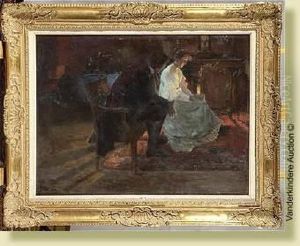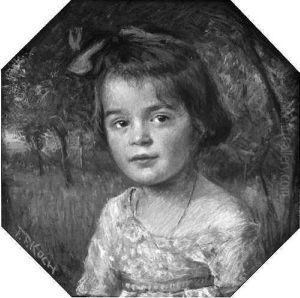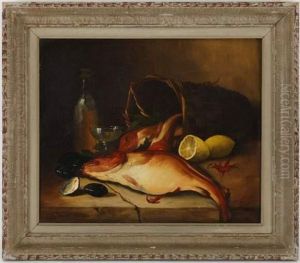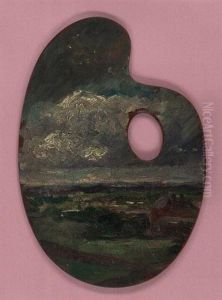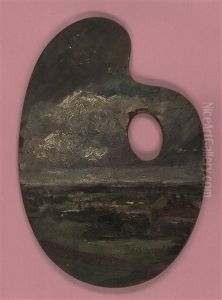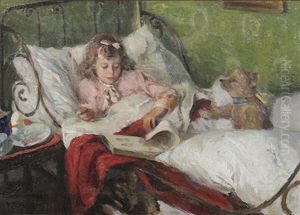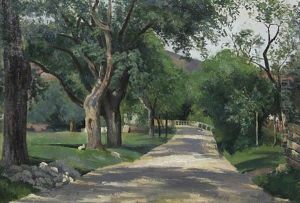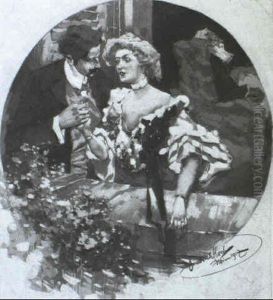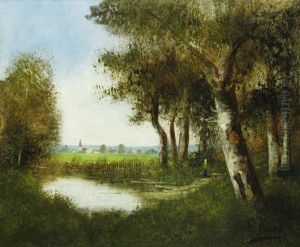Friedrich Ferdinand Koch Paintings
Friedrich Ferdinand Koch was a German artist born in the late 19th century. His life spanned a period of significant change in Europe, witnessing the transitions and upheavals of the late 19th century into the early 20th century, including the First World War, the interwar period, and the beginning of the Second World War. Koch's work and artistic legacy, however, remain less widely known than some of his contemporaries, making his biography somewhat obscure and primarily of interest to scholars of art history and specialists in the period.
Koch's artistic journey began in an era dominated by traditional academic art, but he, like many artists of his time, would have been exposed to and possibly influenced by the myriad of new art movements that emerged around the turn of the century, such as Impressionism, Expressionism, and the beginnings of Abstract Art. Despite the lack of extensive records on his specific contributions and style, it's plausible to suggest that the socio-political upheavals and the rapid modernization of society during his lifetime would have impacted his artistic expressions.
Throughout his career, Friedrich Ferdinand Koch might have explored various themes and mediums, reflecting the broader experimentation of the era. Artists in this period were increasingly interested in depicting modern life, emotional and psychological depth, and experimenting with color, form, and technique. Given the scant documentation on Koch's exhibitions or specific artworks, one can only speculate about his participation in these broader artistic trends.
Koch's death in 1942 occurred during a tumultuous period in history, amidst the Second World War, a time when the art world in Europe was fraught with challenges, including censorship, the flight of artists from the continent, and the looting and destruction of art. The impact of these events on Koch's final years and his artistic production would likely have been significant, as it was for many artists of the era.
In summary, while specific details about Friedrich Ferdinand Koch's life and work are not widely documented, understanding his biography within the context of his time helps illuminate the challenges and dynamics faced by artists in Europe between the late 19th century and the first half of the 20th century. Koch's legacy, like that of many artists of his time, reflects a period of great artistic evolution and social change.

